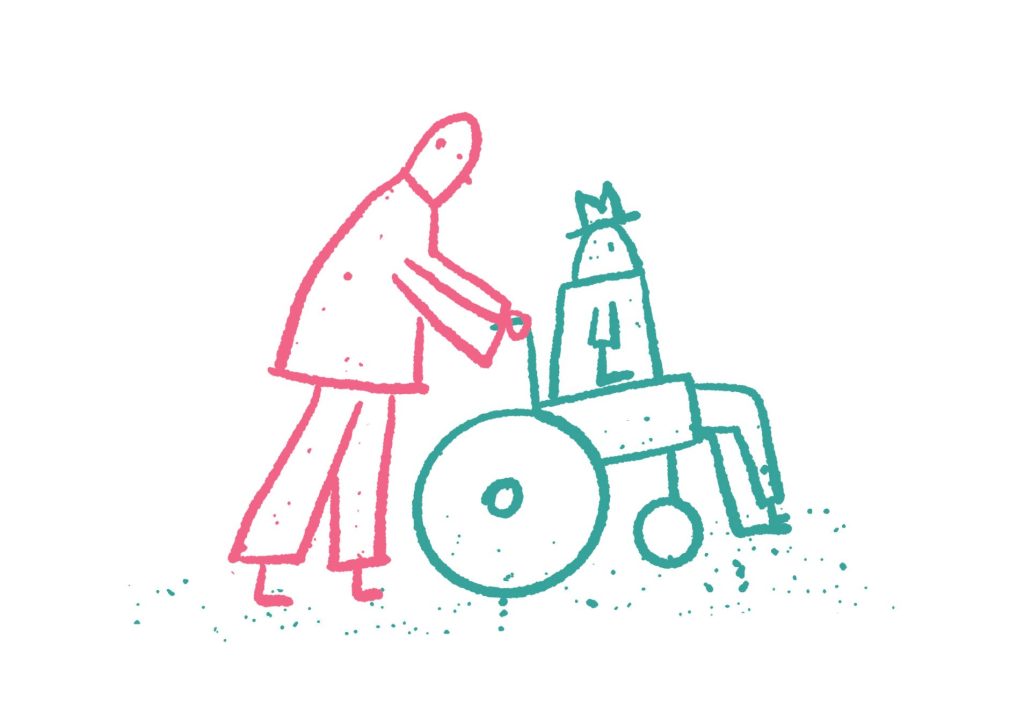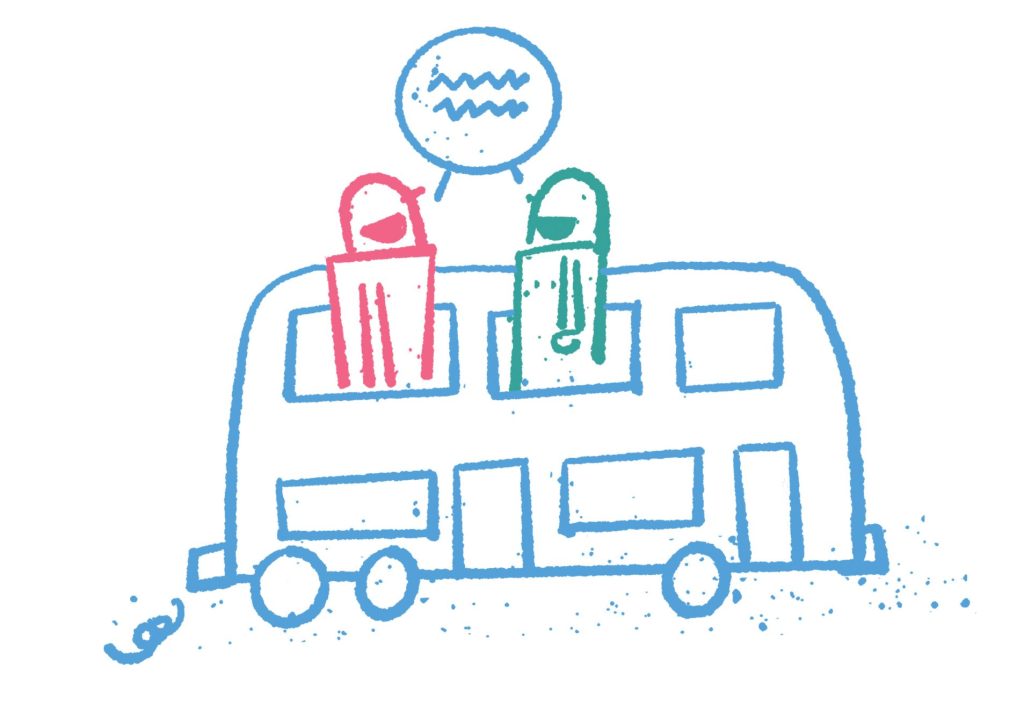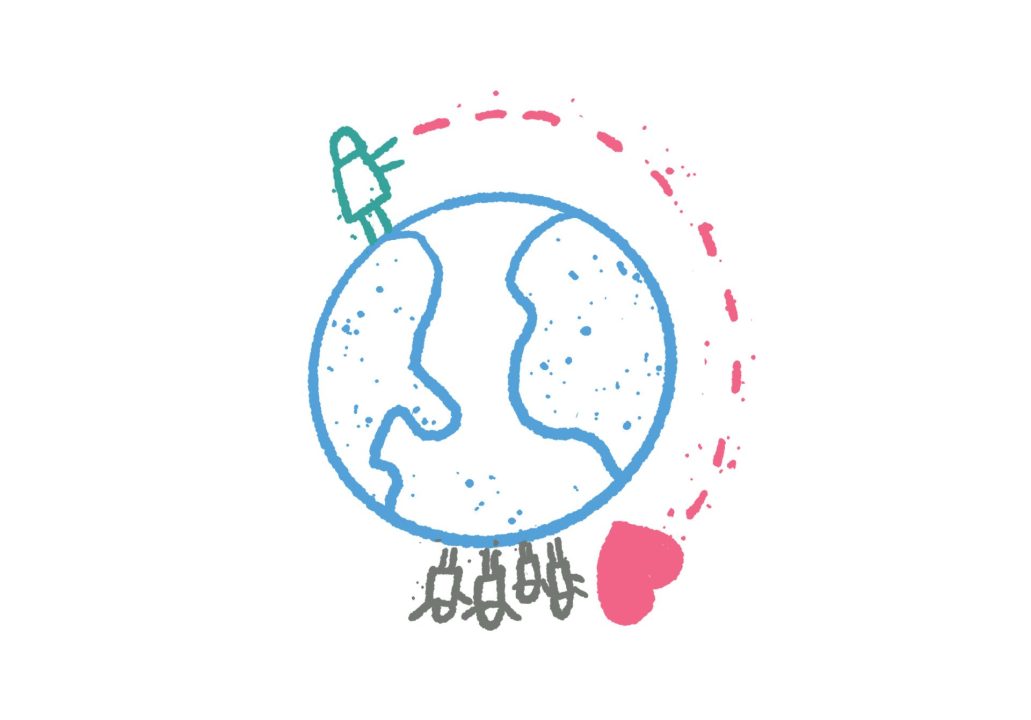
You see them on Victoria’s buses—some dressed in hospital or care home scrubs, some looking like they are out for a day of shopping. Those who have done the work of getting driving lessons and the much-coveted driving license—more often than not—drive cars sporting a license with the name of a second-hand car dealer. If you happen to be on a bus with two or more of these care workers, you will hear the lilting sounds of a foreign language, and laughter—much laughter. They are very likely Filipinos who are part of the backbone of frontline workers who have supported the Victoria community through the darkest days of the COVID-19 pandemic.
Long-term care homes and assisted living facilities have been the epicentre of the COVID-19 outbreak in British Columbia. Filipinos comprise a large number of care aides—mostly women—although a small number are men—who came to Canada under the federal Live-in Caregiver Program. The program was designed to help Canadian families and companies hire applicants from overseas to provide care to children, the elderly, and persons with disabilities. The program attracted many applicants from different countries because it allowed live-in caregivers to transition from temporary workers to permanent resident status after two years’ work experience in Canada. In Victoria B.C., there are enough Filipino care aides that they have formed their own organization: the Victoria Filipino-Canadian Caregivers Association (VFCCA), one of the organizations under the umbrella of the Bayanihan Cultural and Housing Society. The joy and the sense of community that Filipino front line workers project when they are together is compelling. Their laughter and free-spirited nature belie the challenges that they face daily—and their very hard work.
Many of them would have had to raise significant amounts of money back in the Philippines to pay for application fees and airfare. In many cases, families would pool their resources together to help a sister or daughter realize their dream of working in Canada, even mortgaging or selling what land they have to make this happen. Once in Canada, Filipino caregivers have to deal with the demands of adjusting to a new culture and conducting the majority of interactions in English—not to mention the weight of homesickness.
Much of the education in the Philippines is in English, so the language barrier is easily overcome. Many caregivers had professional status in the Philippines as teachers, nurses, laboratory technicians, a status they give up in Canada unless they go through a new round of courses and certifications. As caregivers, they earn much less than they would as teachers and nurses.

But for many, the low pay is not a deterrent. Most caregivers feel grateful for the chance to live and work in Canada and earn more than what they would earn back home. For many, sending money back to family in the Philippines is a given. Most Filipino caregivers know the locations of Western Union and Moneygram, and other cash remittance services. Cargo companies serving the Philippines thrive in Canada, with Filipino-Canadians regularly sending boxes of goods and treats called “Balikbayan” (returning to the home country) boxes. The sting of losing one’s professional status is made up for by the camaraderie and support among fellow migrants.
Maria (not her real name) works for a seniors’ home in James Bay, a seaside community in Victoria B.C. She works five eight-hour shifts each week, and is happy to take on additional hours at overtime pay. “I often get called to do overnight shifts. Those are not easy to fill. As long as I feel I have the energy, I like doing overtime work. It is more money in the bank.” Maria has a husband and two children in the Philippines that she sends money to.
Diana is sixty-three years old. She has worked for a group home for persons with disabilities for years. She got permanent resident status and then became a citizen, and was able to sponsor her son and his family to come to Canada. “I got a second mortgage on my condo so I could help my son get their own place. This is the reason I am still working. I would like to work as long as I am able. Besides, I really love the people I care for.”
“There are a few of us Filipinos in the agency that I work for. We often get compliments for our strong work ethic. I think most of us go beyond the basics of what we are expected to do, and go the extra mile—whether it’s providing one-on-one time to the people we care for, or taking care of the facilities and the premises,” says Lia, who now also is a permanent resident and on her way to citizenship.
“It can be hard and tiring work, caring for people. But we have the skills, and we have the qualities that many families look for when it comes to caring for their family members. Families appreciate kindness and cleanliness and attention,” adds Rose.
And so they soldier on—Filipino women and men, uprooted from their homes and families in the Philippines, sharing the skills they learned and what they know of providing care and support, even as they work to make Canada their new home.
“The most difficult thing about being in Canada is the loss of our communities and extended families. It can get very lonely here,” reflects Mely. “Most families we work with appreciate our work, but some difficult people talk to us as if we don’t understand English, or talk down to us as if we were servants. I think because we do work that is low on the income scale and work that not many people are willing to do, it is as if we are a lower class somehow. The general public needs to know that we bring a lot of skills and new perspectives that contribute to a kinder Canada, and we deserve to be seen.”

This article was originally published in print in November 2020
Read all the #WeAreHere featured articles here